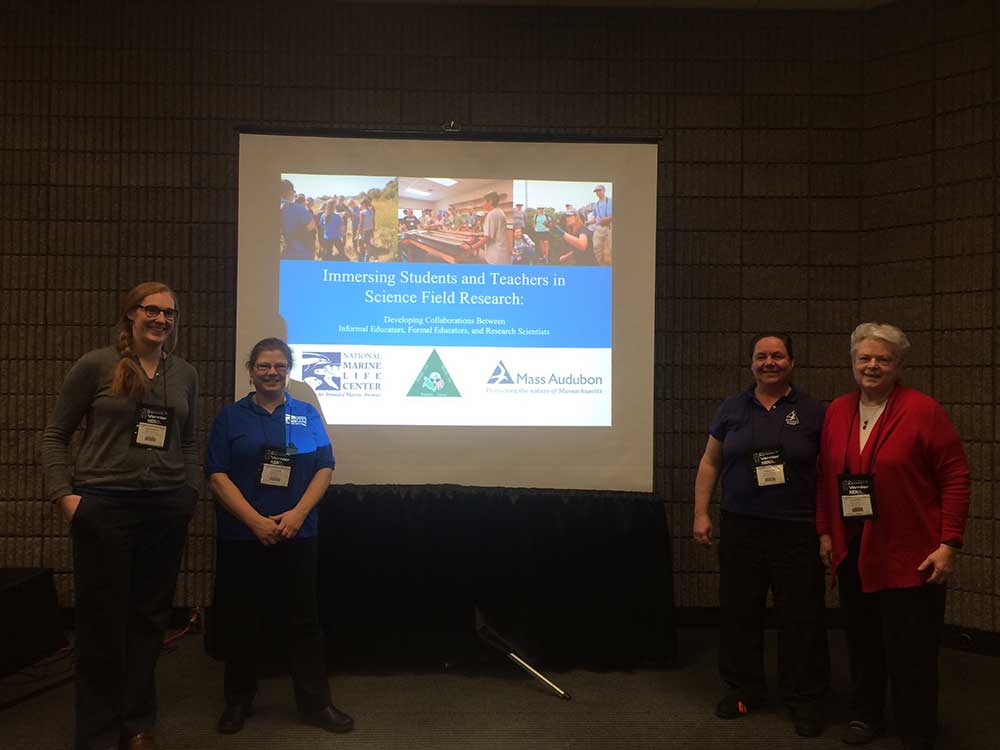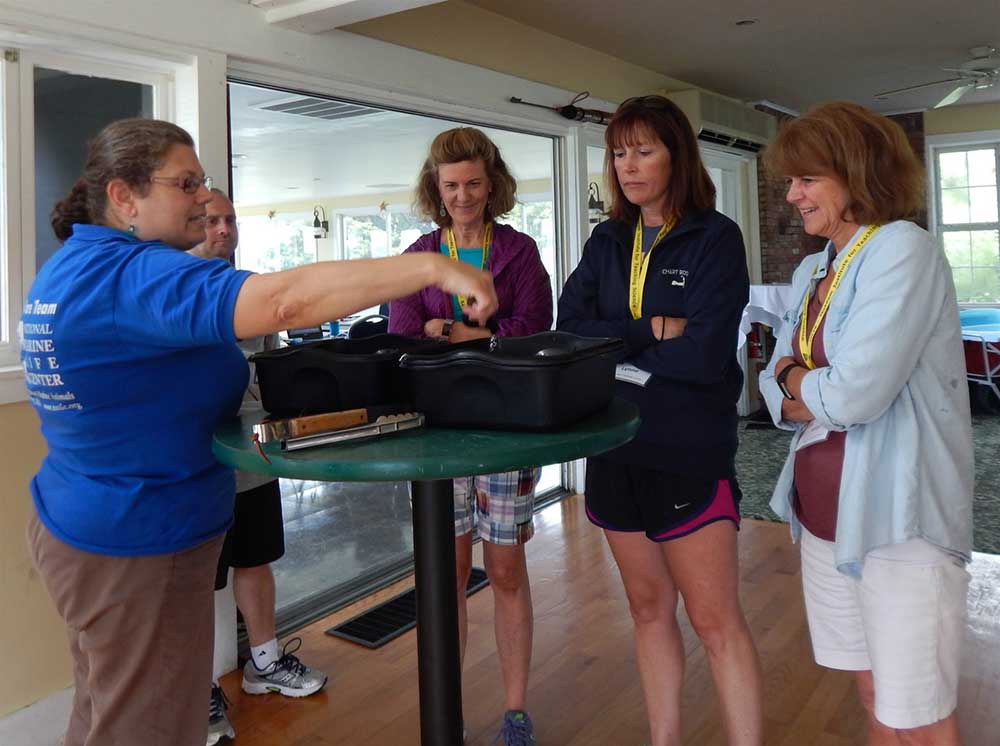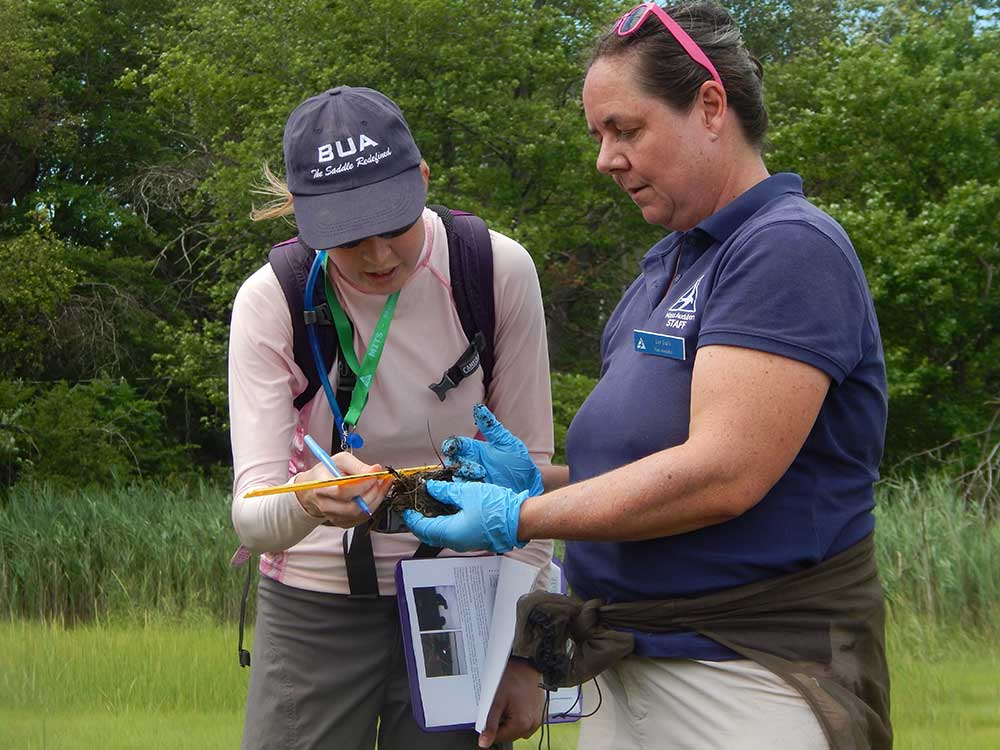Wednesday, March 21, 2018
For Immediate Release
MITS Presents at NSTA Conference:
How to Develop Collaborations to Immerse Students and
Teachers in Science Field Research
Atlanta, GA – Thousands of educators convened for the March 15 – 18 National Science Teachers Association (NSTA) 2018 Atlanta National Conference. Museum Institute for Teaching Science (MITS) staff attended a range of science-based sessions, represented MITS and Massachusetts Marine Educators, and presented in collaboration with partners.
Presenters (L-R) MITS Assistant Director of Education Brianna Wilkinson, President and Executive Director at National Marine Life Center Kathy Zagzebski, Education Coordinator at Mass Audubon’s Endicott Wildlife Sanctuary Liz Duff, and MITS Director of Education Linda McIntosh presented “Immersing Students and Teachers in Science Field Research: Developing Collaborations Between Informal Educators, Formal Educators, and Research Scientists”. (Photo courtesy of Liz Duff)
In conjunction with 15 other organizations, MITS staff engaged educators in hands-on ocean science activities at the Massachusetts Marine Educators exhibit table during the National Marine Educators Association’s Whale of a Tale Share-a-Thon on March 15th. During this session, MITS promoted ocean and climate literacy and helped educators determine ways to become involved in both ocean and freshwater initiatives from local and national organizations.
On March 16th, MITS and partners presented Immersing Students and Teachers in Science Field Research: Developing Collaborations Between Informal Educators, Formal Educators, and Research Scientists. The session, sponsored by the Association for Science-Technology Centers, drew an audience that included informal educators from a variety of organizations, as well as classroom teachers. Presenters Kathy Zagzebski, President and Executive Director at National Marine Life Center, and Liz Duff, Education Coordinator at Mass Audubon’s Endicott Wildlife Sanctuary, shared their findings from many years of combined experience. Kathy spotlighted strategies for identifying potential sources for collaboration, approaching scientists and cultivating successful partnerships. Liz highlighted her successful work as an education representative of Plum Island Ecosystems Long Term Ecological Research, and how students can participate in research projects like “Salt Marsh Science”. MITS educators clarified how 2018 Summer Professional Development Institutes are a meeting point for these groups, bringing together informal educators, K-12 classroom teachers and research scientists.
Friends of MITS were featured in several other sessions at the conference: Board members Jake Foster and Joe Levine, Professional Development Seminar presenter Rudolf Kraus of Rhode Island College, and Summer Professional Development Institute alumnus and 2018 Massachusetts Teacher of the Year, Cara Pekarcik, to name a few.
With hundreds of sessions to attend and thousands of people to meet, the conference was overflowing with learning opportunities. Sessions included ideas for engaging students with data about everything from climate change to sneezes, strategies like visual thinking and using real-world phenomena, and stories about how other states are developing professional development to support teachers in meeting Next Generation Science Standards. MITS educators look forward to putting the ideas gathered during the conference to use in upcoming programs.
###
The Museum Institute for Teaching Science specializes in providing hands-on, minds-on, inquiry-based STEM professional development for formal and informal educators. For more information, visit www.mits.org or call 617-328-1515.



